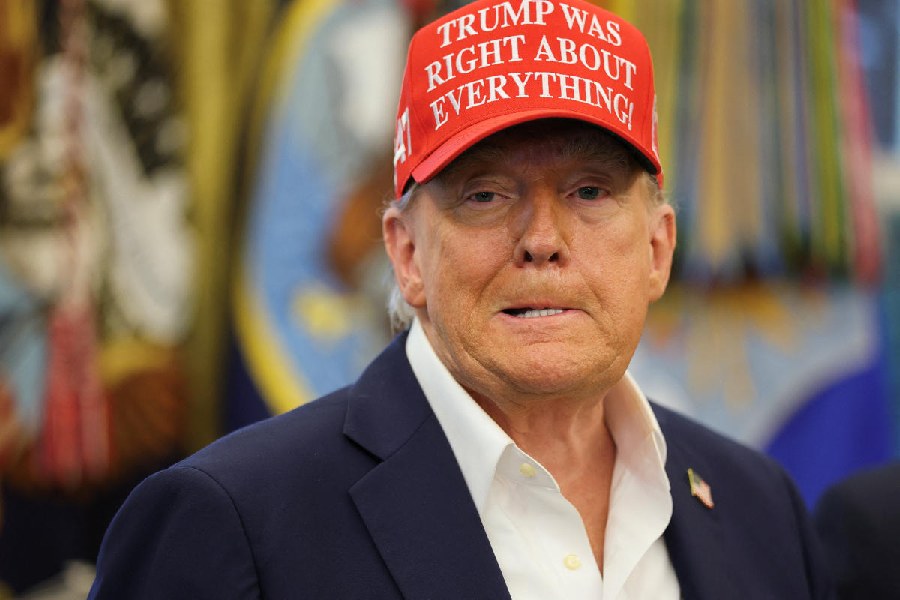Former President Trump calls court decision on tariffs ‘partisan’ and warns of economic disaster if they are lifted
Court Declares Some Trump-Era Tariffs Illegal, But Keeps Them Temporarily
Former U.S. President Donald Trump has strongly defended the tariffs imposed during his administration after a U.S. federal appeals court ruled that many of them were illegal. However, the court allowed the tariffs to remain in place temporarily, giving Trump the opportunity to challenge the ruling in the Supreme Court.
Trump Warns of Economic Collapse if Tariffs Are Removed
In a statement posted on Truth Social, Trump emphasized the importance of keeping tariffs in place, arguing that removing them would be “disastrous” for the U.S. economy.
“ALL TARIFFS ARE STILL IN EFFECT! If these tariffs ever went away, it would be a total disaster for the country. It would make us financially weak, and we have to be strong,” Trump stated.
Key Points from Trump’s Statement:
- Tariffs are essential for economic strength.
- Court’s decision labeled as “highly partisan”.
- Promises to take the fight to the Supreme Court.
- Tariffs protect American manufacturers, farmers, and workers.
- Vows to continue battling unfair trade practices by other nations.
Trump Targets Trade Deficits and Unfair Barriers
Trump reiterated his long-standing position that other countries—whether allies or adversaries—have taken advantage of the U.S. with massive trade deficits, unfair tariffs, and non-tariff barriers.
“The U.S.A. will no longer tolerate enormous trade deficits and unfair trade practices that undermine our economy,” Trump added.
He also emphasized that tariffs are a powerful tool to support “Made in America” products and protect domestic industries.
Background: How Trump Used Tariffs as a Trade Weapon
Since returning to office, Trump has reshaped global trade policies by leveraging U.S. economic power to force better trade terms. Earlier this year:
- Trump announced new “reciprocal tariffs” of up to 50% on imports from countries with trade deficits.
- A 10% baseline tariff was also introduced for most other countries.
- He used a 1977 law to declare trade deficits a national emergency, justifying the tariffs.
- Countries unwilling to renegotiate trade deals faced steeper penalties, while others complied to avoid higher costs.
- India and Brazil were among the nations hit with the highest tariffs—50%.
US Officials Warn Court Ruling Could Undermine National Security
In a last-minute court filing, Trump administration officials argued that blocking the tariffs would severely impact U.S. foreign policy and national security.
Commerce Secretary Howard Lutnick warned:
- The ruling could trigger retaliation from foreign nations.
- It may undo critical trade negotiations.
- U.S. strategic interests at home and abroad would be at risk.
What’s Next?
With the court temporarily keeping the tariffs in place, all eyes are now on the Supreme Court. Trump’s legal team is expected to file an appeal, aiming to reverse the decision and maintain his aggressive trade stance.
Conclusion
Trump remains unwavering in his belief that tariffs are vital to protect American jobs, industries, and national security. As legal battles unfold, the future of U.S. trade policy—and its impact on the global economy—hangs in the balance.



